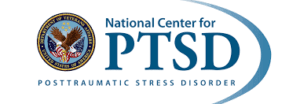
Trauma Therapy & PTSD Treatment for Teens and Adults
For Teens and Adults in Halton & Niagara
Compassionate, Evidence-Based Support from Brookside Therapy & Assessments
Understanding Trauma
At some point in life, most people experience events that overwhelm their ability to cope. These are called traumatic events — situations involving real or threatened harm, injury, or loss that trigger feelings of helplessness, fear, or shock. Examples include:
-
Car accidents or serious injuries
-
Physical or sexual assault
-
Workplace trauma or critical incidents
-
Childhood abuse or neglect
-
Sudden loss or suicide of a loved one
-
Natural disasters
-
Witnessing violence or suffering
Trauma can happen to anyone. In fact, 4 out of 5 people in North America will experience a traumatic event in their lifetime.

What is PTSD (Post-Traumatic Stress Disorder)?
While many people recover naturally from trauma, about 1 in 10 go on to develop Post-Traumatic Stress Disorder (PTSD) — a condition that causes ongoing distress and disrupts daily life.
Common PTSD symptoms include:
-
Flashbacks or intrusive memories
-
Nightmares or sleep disturbance
-
Avoiding reminders of the trauma
-
Feeling disconnected or emotionally numb
-
Panic, irritability, or angry outbursts
-
Constant hypervigilance or being “on edge”
-
Trouble concentrating or relaxing
-
Depressed mood and loss of interest
If these symptoms last for more than six months, or interfere with your ability to function, it may be time to seek professional help.

When to Seek Therapy
If you’re feeling stuck, anxious, emotionally overwhelmed, or shut down, therapy can help you regain a sense of control, connection, and safety.
We provide trauma-informed therapy for teens and adults in a safe, confidential, and compassionate environment.
Effective PTSD Treatments We Offer
We specialize in evidence-based trauma therapy designed to help you heal from past experiences and reduce distressing symptoms. Our approach includes:
🔹 Cognitive Behavioural Therapy (CBT) for PTSD
CBT helps you understand how your thoughts, behaviours, and physical symptoms interact after trauma. You’ll learn:
-
Grounding techniques to stay present
-
Ways to challenge distressing thoughts
-
Strategies to manage anxiety, depression, and avoidance
🔹 Cognitive Processing Therapy (CPT)
CPT focuses on how trauma impacts core beliefs about safety, trust, control, self-worth, and relationships. You’ll learn to:
-
Identify unhelpful thinking patterns
-
Reframe painful thoughts about the trauma
-
Rebuild a more empowered and compassionate self-view
🔹 Exposure Therapy
Exposure-based techniques gradually reduce anxiety by helping you confront, rather than avoid, trauma-related reminders — safely and at your own pace.
🔹 Eye Movement Desensitization and Reprocessing (EMDR)
EMDR is a specialized trauma treatment that uses eye movements or other forms of bilateral stimulation to process traumatic memories. EMDR helps:
-
Desensitize distressing memories
-
Reduce emotional reactivity
-
Foster adaptive resolution of trauma
EMDR is widely recognized as one of the most effective treatments for PTSD and complex trauma.
Additional Support
🔹 Medication Support
For some individuals, medications such as antidepressants or anti-anxiety medications can help reduce symptoms. We work collaboratively with family doctors and psychiatrists to ensure you receive comprehensive care.
🔹 Support Groups
Peer support groups can provide validation, connection, and shared wisdom. Group support may also be available for family members and loved ones affected by PTSD.
Start Your Healing Journey Today
If you or a loved one is struggling after trauma, you are not alone — and you do not have to stay stuck in survival mode.
Our trauma therapists are here to help you move forward with evidence-based, respectful, and personalized care.

